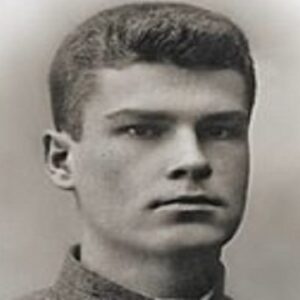Maksim Bahdanovic was a well-known poet, essayist, and translator from Belarus. His fascination with Belarus and its history inspired him to explore his poetic side, which led to him becoming one of Belarus’ most famous poets of all time. While he wrote most of his poems in Belarusian, he also wrote Russian and Ukrainian essays and articles. He became well-known as a novelist and poet, as well as a translator, producing Russian and Belarusian works by some of the world’s most renowned writers and poets, including Alexander Pushkin, Taras Shevchenko, Paul Verlaine, Friedrich Schiller, and Heinrich Heine, from Finnish, Ukrainian, French, German, and other languages. His first novel, ‘Muzyka’ (Musician), was published in the Belarusian daily ‘Nasha Niva’ and was based on his father’s folklore stories and his extensive study of Belarusian folklore books. This gifted poet’s life was cut short when he died of tuberculosis at the young age of 25. As a result, ‘Vianok’ (The Garland) became his only published poetry collection.
Childhood and Adolescence
Maksim Bahdanovic was born on December 9, 1891, in Minsk, Russian Empire (now Belarus) to Adam Bahdanovic and Maryja Miakota, both schoolteachers. His father was a well-known ethnographer and folklorist in Belarus.
In 1892, the family moved to Hrodna, where he was born. His mother, on the other hand, contracted tuberculosis and died in 1896, bringing tragedy to the family. He was only five years old at the time.
His father relocated to Nizhny Novgorod, where the young Maksim became fascinated by Belarus’ history, which inspired him to write poetry. He began writing poems in Belarusian when he was a child.
Career OF Maksim
He became involved in the Russian Empire’s Revolution of 1905, participating in strikes organized by his commilitodes.
In 1906, he began contributing stories to ‘Nasha Niva’ (Our Soil), the government’s first legal Belarusian newspaper.
In 1907, he published his first prose piece, ‘Muzyka’ (Musician), which was written in the style of a folk legend.
Despite the fact that Nasha Niva followed the rule of publishing work under a pseudonym, he insisted on using his own name and was the first contributor to do so.
He gradually moved into poetry, writing in both Russian and Belarusian and having his work published in Nasha Niva in late 1907.
In 1908, his family moved to Yaroslavi, where he graduated from high school in 1911 and enrolled in a law program at the Juridical Lyceum.
He worked at a newspaper while studying law and attempted to write scholarly articles and essays, which were published in Russian and Ukrainian periodicals.
He excelled at translating many Latin, French, Finnish, Ukrainian, and French works into Belarusian and Russian languages, in addition to writing prose and poetry.
He translated works by eminent authors such as Taras Shevchenko, Paul Verlaine, Emile Verhaeren, Alexander Pushkin, Heinrich Heine, and Friedrich Schiller, allowing readers to enjoy some of the greatest masterpieces ever written.
In 1913, he published his first and only collection of poems, ‘Vianok’ (The Garland). After graduating from the Juridical Lyceum in 1916, he returned to Minsk and began working for a local governorate administration.
Achievements & Awards
He is credited with being the first poet in Belarusian literature to introduce new lyrical forms. Belarusian poetry was merely a representation of literature and rhymed poems on socialist themes and contemporary settings before he introduced his style of artistic expression of love for art.
Personal History and Legacy
He contracted tuberculosis while working in Minsk. In February 1917, he traveled to Yalta, a Black Sea resort city on the Crimean peninsula, for treatment.
He died in Yalta on May 25, 1917, at the age of 25, after three months of unsuccessful treatment. Between 1991 and 1995, a complete collection of his poems was published in Belarus.
In Russia and Belarus, he has a number of streets named after him. He has museums named after him in Hrodna, Yaroslavi, and Minsk, including the Maksim Bahdanovic Literary Museum.
Estimated Ner worth
The net worth of Maksim is unknown.


